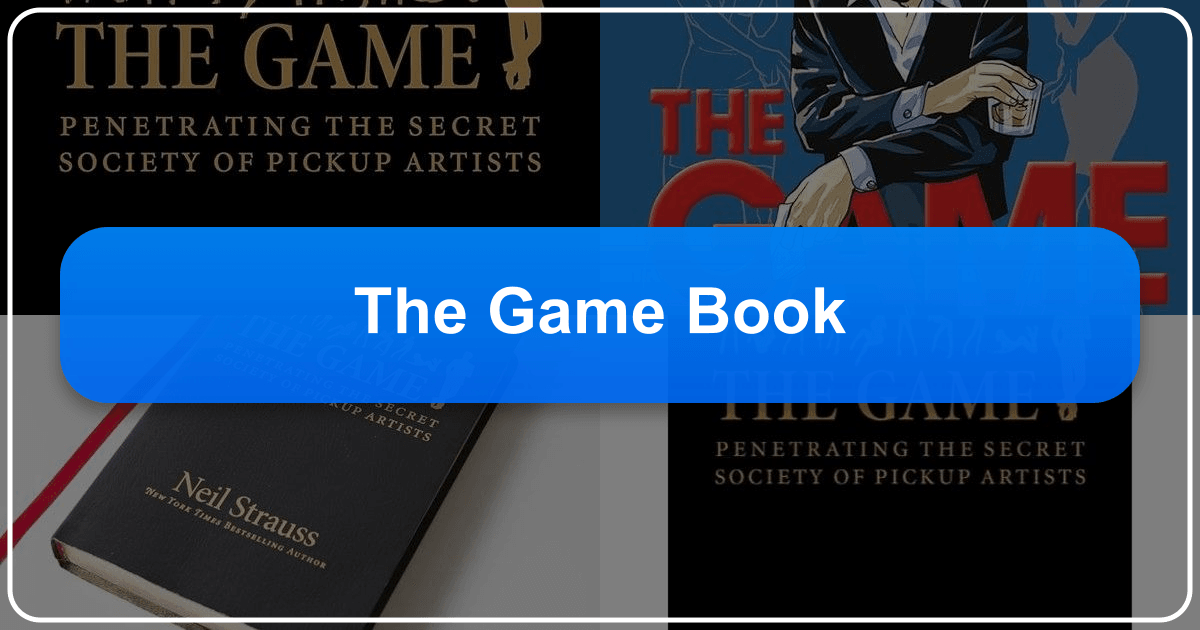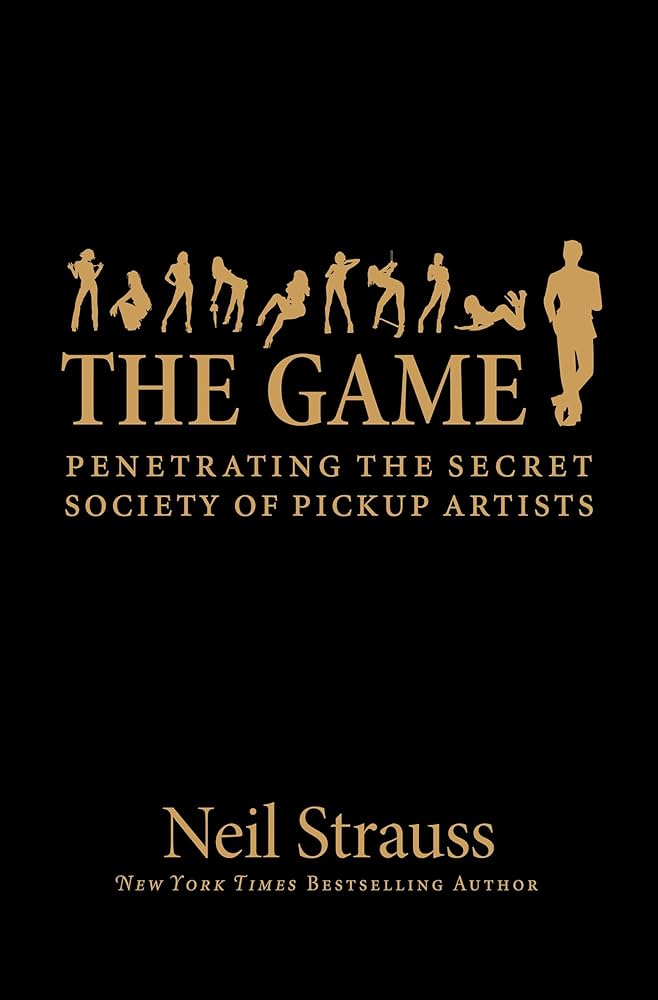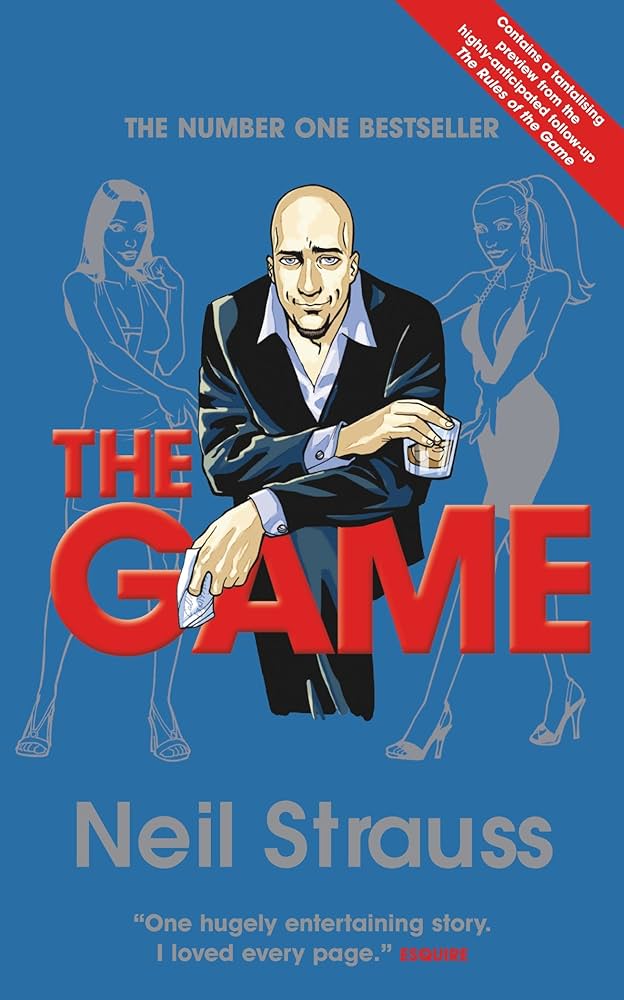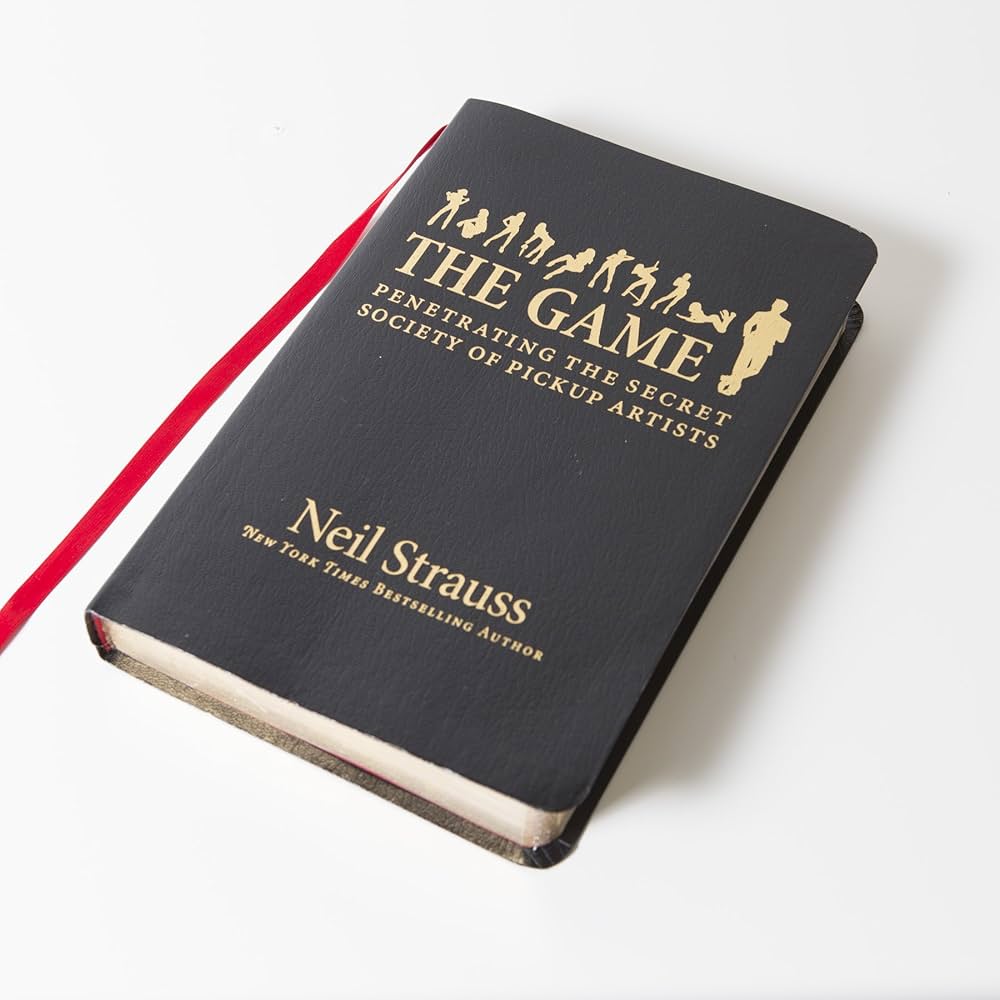The Game Book: A Deep Dive into Neil Strauss's Controversial Memoir

Neil Strauss’s The Game: Penetating the Secret Society of Pickup Artists (also known as The Game: Undercover in the Secret Society of Pickup Artists) isn’t just a book; it’s a cultural phenomenon. Published in 2005, it catapulted Strauss into the public eye, sparking intense debate and controversy while simultaneously becoming a bestseller. This exploration will delve into the book’s content, its impact, and the ongoing discussion it provokes, considering its various facets within the context of literature, society, and the dynamics of relationships.
The Book’s Narrative and Content
The Game is a first-person account of Strauss’s two-year undercover journey into the world of pickup artists (PUAs). Initially, Strauss, a self-described “average frustrated chump” (AFC), approaches the PUA community out of personal frustration with his dating life. His immersion begins with an article assignment, but the intrigue and complexity of the subculture lead him down a rabbit hole of intense observation and active participation.
Strauss’s journey is meticulously detailed, starting with his attendance at a PUA boot camp led by a figure known only as “Mystery.” The boot camp provides a structured framework for learning and practicing seduction techniques. Strauss and other participants approach women, receiving real-time feedback and critiques from Mystery and his associate, Sin. The focus is on refining behavior, body language, and conversational strategies, elements often perceived as lacking within traditional social conditioning.

The book chronicles Strauss’s transformation from an AFC into a skilled PUA, adopting the alias “Style.” He immerses himself in the PUA community, befriending other members, particularly Mystery. This is where a significant portion of the book shifts from autobiography to detailed instruction on seduction methodologies. Strauss imparts various techniques, often presented from a male heterosexual perspective. These methods involve pre-planning conversations, subtly showcasing accomplishments, strategically employing “false time constraints” to create a sense of urgency and opportunity, managing the progression of physical touch, and crafting compelling narratives.
A substantial portion of The Game focuses on Strauss’s experiences within “Project Hollywood,” a luxurious lifestyle shared amongst several top PUAs. This section describes the camaraderie, rivalries, and conflicts within this close-knit group, ultimately culminating in Project Hollywood’s disintegration and the establishment of “Real Social Dynamics” by other community members. This shift highlights the complexities of human relationships, both interpersonal and within the unique context of the PUA community. It is within this context that Strauss arrives at his eventual conclusion, asserting that a life solely dedicated to the pursuit of sexual conquest, as emphasized by some aspects of the PUA lifestyle, is ultimately unsatisfying and ultimately “for losers.”

The book seamlessly weaves together Strauss’s personal transformations, detailing his successes in seduction, his struggles with relationships, his experiments with sleep and personal grooming, and his high-profile encounters with various celebrities, including Tom Cruise, Britney Spears, and Courtney Love. These anecdotes serve to both illustrate the techniques described and to provide a framework for understanding the social and cultural dynamics of the PUA community.
The Book’s Cultural Impact and Reception
The Game generated considerable controversy upon its release, sparking intense debate across various platforms. Critics reacted to both the seduction techniques detailed and the ethical considerations they raise.

Some critics viewed the book as promoting manipulative and unethical behaviour toward women, highlighting instances like “negging” (subtle insults designed to pique interest) as inherently disrespectful and potentially damaging. The book’s focus on game theory and calculated seduction prompted discussions on gender dynamics, consent, and authenticity in relationships, sparking criticisms of misogyny and the objectification of women. Others argued that the book offered a valuable, if flawed, window into the often-hidden world of social dynamics, providing insights into both the power of confidence and the pitfalls of superficiality and manipulation.
Even positive reviews frequently mentioned the book’s inherent contradictions, noting Strauss’s fluctuating perspectives on the practices he details and his ultimate rejection of a PUA lifestyle. The book’s mixed reception underscores the complex and layered nature of its content. Many reviewers focused on the problematic aspects of PUA practices, while others commended Strauss for his insightful storytelling and exploration of self-improvement, even amidst questionable activities. The book’s enduring cultural impact stems from its ability to both expose and critique a subculture, prompting introspection about male identity, interpersonal interactions, and broader sociological questions.
Authors and Their Contributions
Neil Strauss’s personal journey and the resulting book The Game are intimately intertwined. His role as both participant-observer and author brings a unique perspective to the text, allowing for an intimate depiction of the community’s inner workings while maintaining a critical distance. The book’s success hinges on Strauss’s ability to tell a compelling narrative, mixing personal anecdotes with instructional details. He effectively conveys both the excitement and the potential pitfalls of the PUA lifestyle.
While Strauss is the primary focus, other notable figures in the PUA community are featured, including Mystery, Ross Jeffries, Papa, and Tyler Durden. These individuals, with their diverse approaches and personalities, highlight the broader diversity within the seduction community. Their contributions to the book are significant, as their methods and philosophies form the crux of Strauss’s learning experiences and eventual insights.
The book also indirectly acknowledges the influence of other authors and theorists within the context of social dynamics, self-improvement, and psychology.
Reading and Learning from The Game
The Game offers several layers of analysis:
- A narrative of personal transformation: The book is a compelling narrative detailing a self-described loser’s self-improvement through a challenging and unconventional path.
- A social critique: The book offers a critical look into the inner workings of the PUA community, its strengths, and its weaknesses.
- A guide to social interaction: Whilst controversial, the book undeniably provides insights into some social dynamics and communication strategies.
While some find it overtly manipulative, others view it as a source of learning about personal development and social competence. Its value lies in the reader’s ability to discern its ethical implications. It is crucial to approach the methodologies described with a critical eye, filtering out harmful and exploitative techniques while identifying and applying any genuinely helpful strategies for improved social interaction and self-confidence. Learning from this book involves critical analysis, self-reflection, and the responsibility to cultivate healthy and ethical relationship practices.
The Game’s Literary Influence and Adaptations
The Game’s significance extends beyond its content, impacting literature and the broader cultural landscape. Its controversial nature and the intensity of its reception solidified its place as a significant work of nonfiction, prompting conversations about gender, relationships, and social dynamics. Its impact can be seen in its influence on subsequent books, articles, and media surrounding the PUA community and the broader discussions around seduction and relationships.
The book’s enduring popularity also led to various adaptations and references in other media, most notably the VH1 television series The Pickup Artist, which was a direct result of Strauss’s experiences documented in the book. The book’s popularity also made it the target of discussion, critique, and adaptation in various media, highlighting its relevance to ongoing conversations regarding human interaction and self-improvement. A movie adaptation, though in development for years, has been repeatedly discussed and announced with significant actors attached.
Conclusion
The Game remains a complex and controversial book, sparking debate years after its initial publication. While its exploration of the PUA community offers an intriguing glimpse into a subculture’s inner workings and its methodologies, it also elicits essential ethical discussions on manipulation, consent, and the complexities of human interaction. Its legacy lies not only in its literary success but also in its contribution to ongoing cultural dialogues surrounding masculinity, relationships, and self-improvement. The book’s influence, its numerous reviews, and the sustained interest it generates underline its significance as a cultural touchstone.